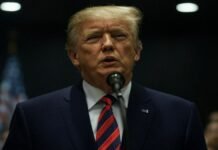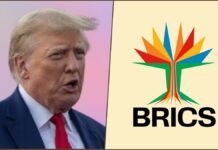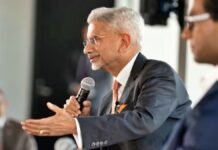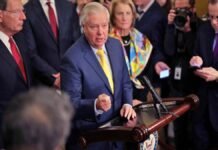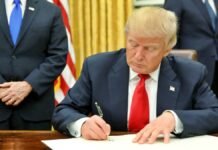
Key Points:
- Firm Stance: Iran rejects direct negotiations with the US, calling them “pointless” due to threats and contradictory statements from Washington.
- Indirect Talks Possible: Tehran remains open to indirect diplomacy through intermediaries like Oman.
- Nuclear Deal History: Tensions escalate after Trump withdrew from the 2015 nuclear agreement and reinstated sanctions.
- Military Preparedness: Iran warns of a strong response to any threats or aggression from the US.
New Delhi: Iran has firmly rejected direct talks with the United States regarding its nuclear program, citing threats and inconsistent messaging from Washington. Iranian Foreign Minister Abbas Araghchi labeled direct negotiations as “meaningless” while reiterating Tehran’s openness to indirect diplomacy through intermediaries such as Oman. This decision comes amid escalating tensions following US President Donald Trump’s recent threats of military action if Iran does not agree to a deal.
Trump’s Push for Direct Talks
Last month, Trump sent a letter to Iran’s Supreme Leader Ayatollah Ali Khamenei, expressing hope for direct negotiations aimed at halting Iran’s nuclear ambitions. He argued that face-to-face discussions would be faster and more effective than indirect talks. However, Trump simultaneously warned of “bombing the likes of which they have never seen before” if diplomacy fails a statement that further strained relations.
In response, Araghchi questioned the sincerity of Washington’s approach, stating, “If you want negotiations, then what is the point of threatening?” He emphasized that Iran seeks dialogue “on equal footing,” criticizing the US for violating international norms and issuing contradictory statements.
Indirect Diplomacy Remains an Option
While rejecting direct talks, Iranian officials have left the door open for indirect negotiations facilitated by Oman. Iranian President Masoud Pezeshkian also expressed willingness to engage in dialogue but stressed that it must be based on equality and mutual respect. Tehran has used Oman as an intermediary in past communications with Washington, including its response to Trump’s letter.
Military Preparedness and Regional Warnings
Iran’s leadership has made it clear that while it prefers diplomacy, it will decisively defend its national interests if threatened. General Mohammad Bagheri, chief of staff of Iran’s armed forces, stated, “We are not the ones who start wars, but we will respond to any threat with all our might.” Additionally, Tehran has cautioned neighboring countries hosting US military bases such as Kuwait, Bahrain, and Turkey that they could face repercussions if their territories are used for attacks on Iran.
Nuclear Deal and Rising Tensions
The strained relationship between the two nations dates back decades but worsened significantly after Trump withdrew from the Joint Comprehensive Plan of Action (JCPOA) in 2018 during his first term as president. The JCPOA was a landmark agreement signed in 2015 between Iran and world powers, offering sanctions relief in exchange for limits on Iran’s nuclear activities. Following the US withdrawal, Iran began scaling back its commitments under the deal and ramped up uranium enrichment.
Despite accusations from Western nations that Tehran is pursuing nuclear weapons, Iranian officials maintain that their program is solely for peaceful purposes. However, senior adviser Ali Larijani warned that if attacked, Iran might have “no choice but to respond” by advancing its nuclear capabilities.
What Lies Ahead?
With tensions at an all-time high and no immediate resolution in sight, the possibility of indirect talks remains a glimmer of hope for diplomacy. However, both sides will need to navigate significant hurdles to rebuild trust and avoid further escalation.
Iran’s rejection of direct negotiations underscores its demand for respect and equality in international relations while highlighting the complexities surrounding its nuclear program and strained ties with the United States.





